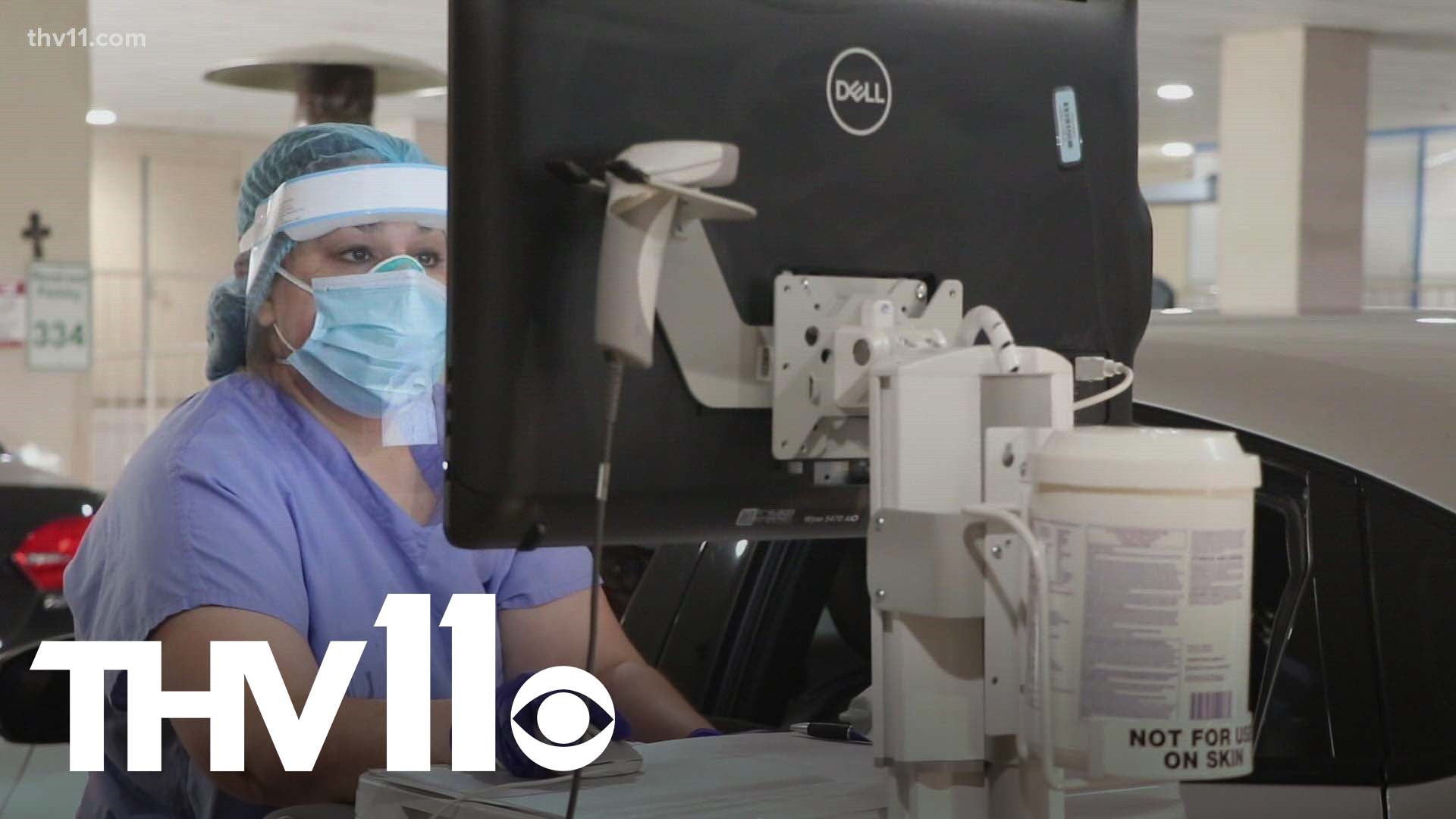LITTLE ROCK, Ark — UAMS will close its COVID-19 vaccine clinic at their Monroe Building at 4 p.m. Friday, March 18, but the hospital will continue to offer COVID vaccines through individual clinics.
In addition to the vaccine clinic, the hospital's testing drive-thru site is set to close at 4 p.m. Friday, March 25.
Beginning Monday, March 28, COVID testing will be available by appointment strictly at the Monroe Building at 401 S. Monroe St.
Dr. Michelle Krause, a lead for UAMS's COVID response team said the demand has dropped dramatically over the past 4 to 6 weeks.
"With the wide spread availability of home testing, the demand isn't there so what we're actually going to do is just move that portion of our testing platform to our Monroe Clinic," said Dr. Krause.
UAMS opened its first drive thru testing site this time two years ago, where they've conducted more than 174,000 tests.
Krause said it's remarkable that they were able to start the drive thru site at the start of March 2020.
She also said that they will still have the ability to test employees and patients, and will continue to offer community vaccines at their Monroe Street building location.
“As the number of COVID infections continue to drop in Arkansas, we no longer need these COVID-specific areas and can meet the demand for vaccines and testing in other ways,” said Steppe Mette, M.D., CEO of the UAMS Medical Center. “Closing the vaccine clinic and the drive-thru will allow us to redeploy our workers to areas where they are needed more.”
UAMS opened its first vaccination clinic in January of last year inside the Freeway Medical Tower, with the current clinic being inside the Monroe Building.
Since the hospital began offering the COVID vaccine, it has administered more than 118,000 doses.
"Having a separate vaccine clinic with such low demand allows us to move those employees back to other clinical areas where we can help serve our patients," said Krause.
Vaccines will continue in all primary care clinics throughout the state.
Krause said it's been a great relief for medical health professionals, especially as January and February were challenging months to work in the hospital.
In the event that another surge were to happen, Krause said that they're ready to readjust back, but she's hoping that won't be the case.
"I'm cautiously optimistic that we'll be able to manage COVID and not have the challenges that we've had in the previous surges but we'll see."

